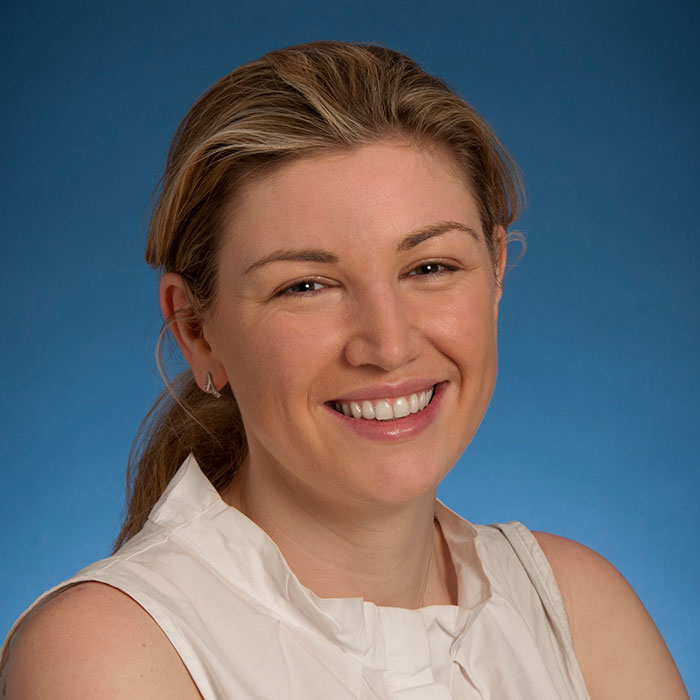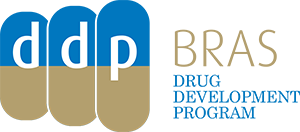
BRAS DDP Clinical Fellow 2012 – 2014
What brought you to Princess Margaret Cancer Centre?
“I have wanted to come to Princess Margaret since I started my medical oncology training in Ireland. The physicians at the Princess Margaret Cancer Centre are world leaders in cancer treatment and research. It is where I had always hoped to work. I’ve been very fortunate to have a position with the Fellowship Program.”
Why did you wish to become a doctor?
“When I was in school, I never thought medicine was something I wanted to do, but I volunteered with patients in hospitals, and I really enjoyed that. My interest in science, and the patient experience, prompted me to apply for an undergraduate degree in medicine. It was during this time, that I became more interested in the process of how cancer occurs, and how it affects patients. I took a year out of my medical degree course, to complete a BSc in pathology, which focuses on carcinogenesis – the production of cancer. All of this, in combination with the experience of communicating with, and treating many cancer patients throughout my general medical training, led me towards a career in oncology.”
What is your work of expertise?
“I work within the BRAS Drug Development Program, and my research is focused on the two clinical research areas of head and neck cancer, and lung cancer. In addition, I am working in the Genomics Program, which is called IMPACT. IMPACT stands for: Integrated Molecular Profiling in Advanced Cancers Trial, which was established within the Bras Drug Development Program.
The study allows genomic profiling, or gaining information about abnormalities of cancer genes, from tumours in different cancer sites.
Much of my research is linked with another program called MATCH. In addition, I also get the opportunity to work in the COMPACT clinic, which allows cancer patients treated at other centres, access to the genomic profiling provided by the IMPACT study. We are attempting to find out more about the genetic changes within cancers, and looking at the differences between tumours
that are occurring at the same time within the patient’s primary tumour. The same applies to an area where a tumour has spread to another site – which is called metastasis.”
Editor’s note:
IMPACT was launched on March 1st, 2012. It is the first Canadian comprehensive molecular cancer screening program, that seeks to provide doctors with specific cancer gene information, so that each patient’s treatment can be tailored to his/her specific form of the disease. IMPACT is led by Drs. Philippe Bedard and Lillian Siu. Molecular testing for IMPACT is performed in the University Health Network Molecular Diagnostics Laboratory, at the Princess Margaret Cancer Centre, directed by Dr. Suzanne Kamel-Reid, and results from the molecular testing are included in the patient’s electronic health record. To learn more about IMPACT, please visit the 2012 newsletter on www.brasddp.com.
MATCH is a Feasibility Study of Genomic Profiling Methods, and Timing of Sample Collection to Evaluate Clonal Evolution and Tumour Heterogeneity. To learn more about MATCH, please visit, www.brasddp.com under the 2012 newsletter link – author, Dr. Aaron Hansen.
Do you treat each site differently?
“Dr. Aaron Hansen’s study – MATCH – is one of the ongoing studies in the program at present, which hopes to look specifically at these questions, by assessing tumors at the time of progression or spread.”
Do you feel we are making progress in the war against cancer?
“I do. Patients are surviving for longer periods, receiving multiple lines of therapy, potentially with newer treatments, and in general, they are tolerating their treatment better. Some of the greatest impact is seen from targeting treatments to patients. Through the IMPACT and COMPACT study, our aim is to provide patients with better quality of life, and extra time with their
families. This is great to see!
In the Thoracic Oncology Department and the Bras Drug Development Program, we are seeing people that are living for months or years beyond what we would see traditionally. Newer therapies are being introduced, and as successful treatments become incorporated into clinical practice, we will see greater improvements in how patients live with cancer.”
What is immunotherapy?
“Some of the newer treatments are based upon the premise that cancers may evade immune system’s response. (This is one of the mechanisms by which they spread and grow.) Some of the immunotherapies essentially stimulate the immune system, so it begins to fight the cancer. We are seeing impressive responses in some of our cancer patients.”
“SAVOUR, ENJOY AND APPRECIATE. LOVE HARDER, SHARE MORE, GIVE OFTEN, AND SAY, ‘THANK YOU.”
– LEE PETTERSEN
Is there any interaction with other major cancer centres in the world?
“There is on-going interaction and collaboration with multiple different cancer centres throughout the world. With many trials, we will be one of a number of treatment sites. So, in the Phase I group, we will have ongoing communication with the study sponsor, along with the other cancer centres, or sites that are also performing the studies, to discuss the specific effect that new drugs may have had on each of the patients. When a study is ongoing in multiple different sites, it is important that we do not miss the subtleties of the potential side effects of the drugs, and having a formal discussion makes all the difference. You can pick up trends that are occurring, or things that maybe we didn’t expect to see, resulting in increased understanding of the treatment.
When patients are being treated with drugs for the first time, pooling the experience of multiple centres involved in the study through discussion, gives greater insight into side effects and the benefits of therapy.”
The population of any one trial globally is quite large?
“In the phase I setting, smaller numbers of patients are normally enrolled, but in later phase studies – yes. The populations may be quite large, particularly when treating common cancers. If you are trying to find a representative sample of a group of patients with breast cancer, or lung cancer; it’s such a common cancer, that you really need to look at quite a large number of patients, to see if the agent or combinations of treatments are beneficial”.
With all the cancer centres involved in one trial, who decides what treatment will be used?
“In the initial trial design, the decision is made by the Principal Investigator, which could be Princess Margaret; another site; a cooperative group, or a drug company. There will be an opportunity to discuss the design of the study prior to the study opening at our centre. As the study progresses, there may be a change or an amendment, which could change admission criteria to the study, or tests that are required, or how the study will be run. Investigators will pool their experience to discuss the best way forward with a study.”
What are some of the major advances in the last few year, and challenges?
“The advent of targeted therapy, and immunotherapies, has really expanded treatment options for cancer patients. The challenge is how we integrate cancer treatments. How do we ensure we are giving the right treatments to the right person, who will then gain a benefit from specific treatments? For each treatment administered, there may be subsets of patients who have clear benefits, and others who do not. Our aim is to select the patients, and then match them to the right drug. This is what we call personalized cancer medicine. We hope to select the patients who will benefit most, and avoid side effects for patients who are not going to gain benefit. This is a challenge for the coming years. However, treatment options for our patients are increasing all of the time. We are seeing the quality of life, and survival for patients is improving.”
Are we seeing newer cancers?
“Historically we saw cancer as a number of diseases characterised by primary site of disease. For example: Lung cancer was seen as a lung disease, until more recently. Now we see it as actually a number of different diseases. There are different mechanisms by which lung cancer develops, and subsequently, many different subsets. These can be broken down by histology, or appearance under the microscope, or by molecular changes that are present in the tumor. Treatments have been developed that will target these changes, and subsequently, groups of patients within these subsets will respond better to certain treatments. Cancer is not just one disease, it is many different diseases. This may result in new terminology for pre-existing diseases.”
What is great about working in the Bras Drug Development Program at the Princess Margaret Cancer Centre?
“The Fellowship Program is excellent. I came into the Bras Drug Development Program having had no prior involvement in Phase I trials, so it is a completely new experience. The focus on education is really impressive. I’ve learnt so much since coming here. Also the mentorship is excellent. Our mentors are available, and approachable, and provide ongoing encouragement. If there are challenges with our research, they work with us to help find the solution, and keep things moving along. This is so important. So the mentorship and support really is absolutely brilliant. I have been incredibly fortunate to have Drs. Lillian Siu, and Frances Shepherd as my mentors.
The patient exposure in this centre has been a bonus also. In other Fellowship Programs, I am not aware that Fellows receive such high levels of patient exposure. We are continually managing patients receiving specific drugs, and noticing patterns with the effects they have, some expected, and some unexpected. Our ongoing education covers areas such as, how you set up a trial, or write up a grant. We learn about the steps involved in developing these drugs – but also we are seeing how these treatments affect patients. This is key. Having patient experience makes such a difference. We see the effects of these treatments on patients, and how they live their day-to-day lives. AND that they may actually live normal day-to-day lives! The patient exposure really makes such a difference. I will take away so much from the Fellowship Program, because I have gained such an insight into the process. I have learned so much from being involved in patient care, than I would have by reading a table of adverse events about a drug.”
We see the effects of these treatments on patients, and how they live their day-to-day lives. AND that they may actually live normal day-to-day lives!
What inspires you to continue on in your work?
“The patients. It is all about the impact that cancer treatment has on patients. When I see patients having improvement in their quality of life, having improvement in their survival, this is the reason I work in oncology. When something translates from pre-clinical research into clinical practice, and I start to see the improvement for patients, and I start to see the gains that are being made, then this is why I do what I do!”
How are you going to survive another Toronto winter?
“I quite enjoy it. I learned to ski last year!”
What are you going to be doing at the end of your two years?
“At the end of my two years as a Fellow at the Bras Drug Development Program, I am returning to Ireland, where I will work in a Laboratory Research Program. My hope is to marry the work I carry out there, with the research I have done here. And who knows after that!”
Thank you Donna.
Maggie Bras
